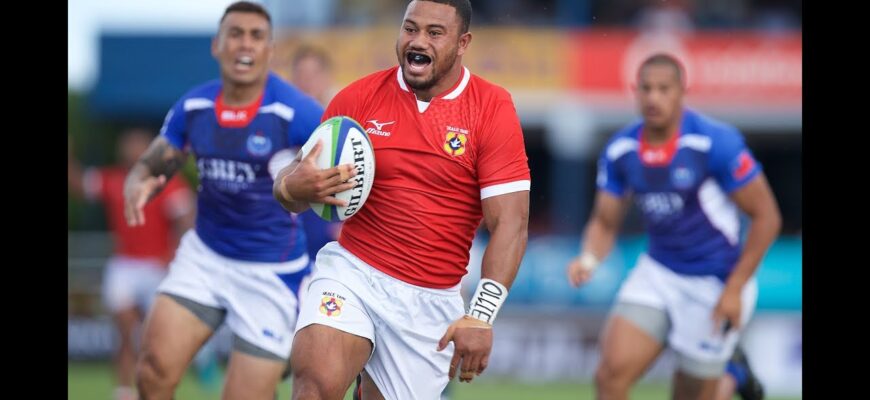The thunderous roar of a stadium, the perfectly timed tackle, the strategic dance of power and agility—these are the hallmarks of professional rugby, a sport that demands intense discipline and controlled aggression. Yet, even the most celebrated athletes, accustomed to navigating high-pressure situations on the field, can find themselves in an entirely different kind of scrum when the spotlight shifts from the pitch to the pavement.
Such is the unfortunate narrative now unfolding around Penikolo Latu, a name once synonymous with the robust spirit of Tongan rugby. The former international, who proudly represented his nation nine times between 2017 and 2021 and even played for the prestigious “Junior All Blacks,” now navigates the complexities of the Australian legal system following a night that drastically veered off course.
A Newcastle Night, A Fractured Reality
The incident in question dates back to March 1st, occurring within the confines of the King Street Hotel in Newcastle, Australia. What began as an ordinary evening took a severe and violent turn, culminating in Latu being found guilty of grievous bodily harm. The victim, an off-duty officer identified as Aaron Barnett, sustained injuries that painted a stark picture of the altercation`s severity: a fractured eye socket, a brain hemorrhage, a chipped tooth, and numerous bruises. These are the kinds of injuries that leave no room for ambiguity about the impact and force involved.
Self-Defense or Excessive Force? The Court`s Deliberation
In court, the physical contact itself was not disputed. Latu`s defense pivoted on the claim of self-defense, arguing that he felt threatened and acted accordingly. This is where the narrative becomes critically complex. To unravel the events of that night, Judge Janine Lacey was presented with a comprehensive array of evidence: surveillance footage from the nightclub, recordings from police body cameras, and Latu`s own testimony. It was a thorough review, meticulously piecing together the chaotic fragments of a moment gone terribly wrong.
After careful consideration, Judge Lacey acknowledged the possibility that Latu might have perceived a threat, a recognition that, for a fleeting moment, might have offered a glimmer of understanding for the defense. However, the critical juncture arrived with her ultimate finding: the level of violence employed “exceeded the permissible limits of necessary self-defense.” In essence, while the instinct to protect oneself is a fundamental human right, the extent of that protection, in the eyes of the law, was deemed disproportionate. Intriguingly, the victim`s profession as a police officer was explicitly declared irrelevant to the case, ensuring the focus remained solely on the actions and their legality, rather than any perceived status advantage or disadvantage.
The Price of a Punch: What Lies Ahead for Latu
With the guilty verdict delivered, Penikolo Latu now faces the grim reality of sentencing, which is scheduled for November. This ruling not only casts a long shadow over his past sporting achievements but also presents a formidable challenge to his future. The defense has already signaled its intention to appeal, indicating that this legal battle, like a hard-fought rugby match, is far from over. For Latu, a player who once showcased his immense physical prowess on international stages, this is a stark and somber reminder that the rules of engagement extend far beyond the meticulously marked lines of a rugby field, and the consequences for breaking them can be severe and career-altering.
This case serves as a poignant, if somewhat uncomfortable, reflection on personal responsibility, the boundaries of self-defense, and the unforgiving nature of legal proceedings. It`s a narrative that reminds us that even heroes of the sporting arena are subject to the same laws as anyone else, and the spotlight, once focused on triumph and glory, can just as quickly illuminate misjudgment and its profound repercussions.









